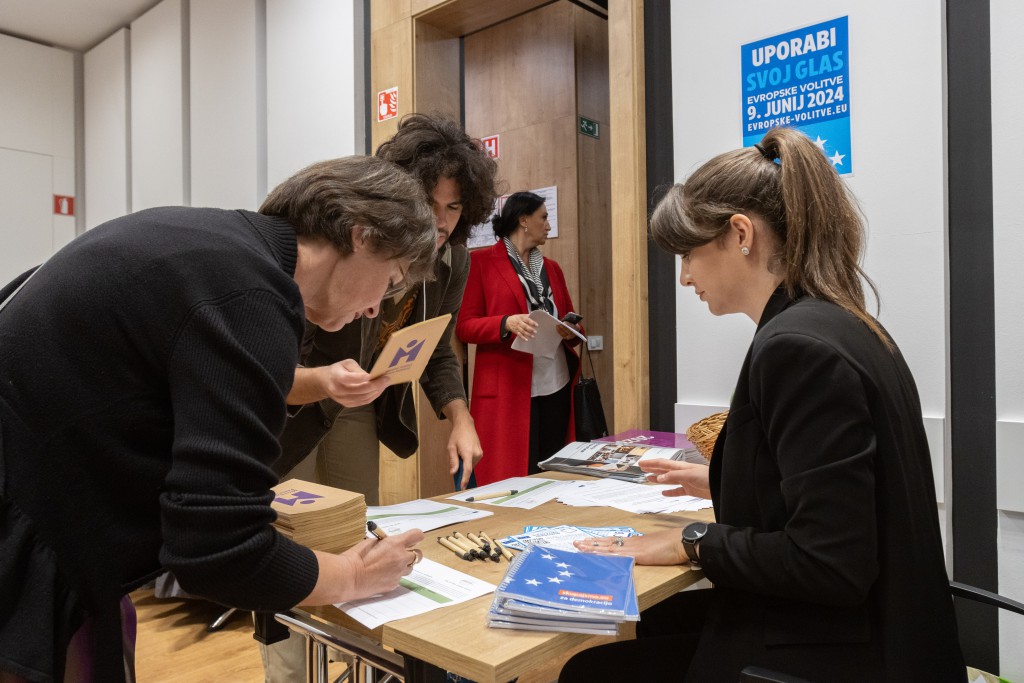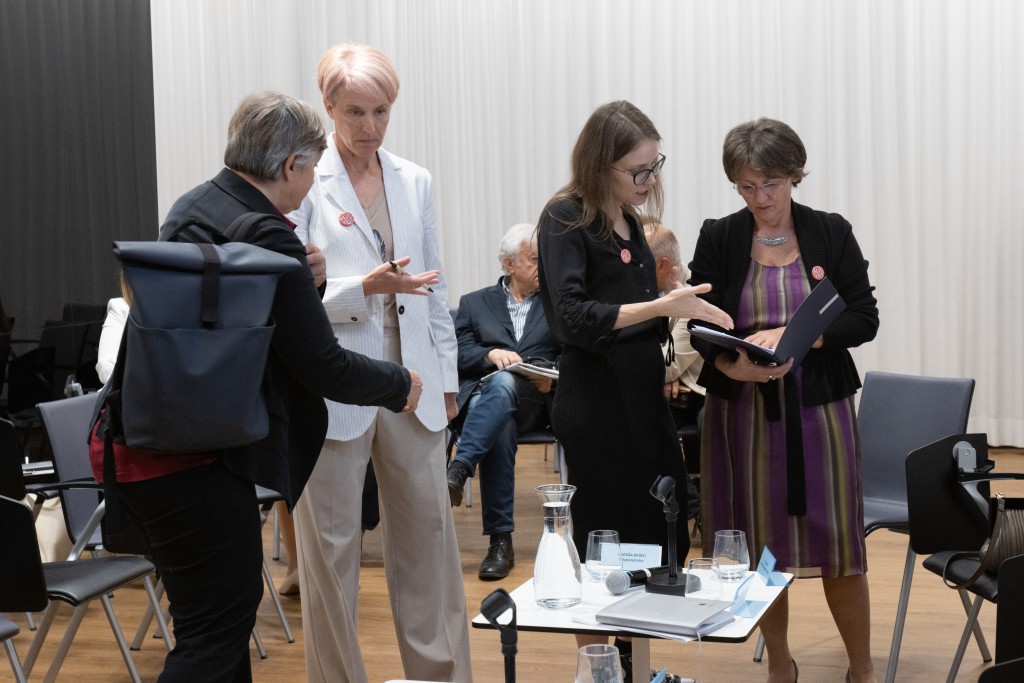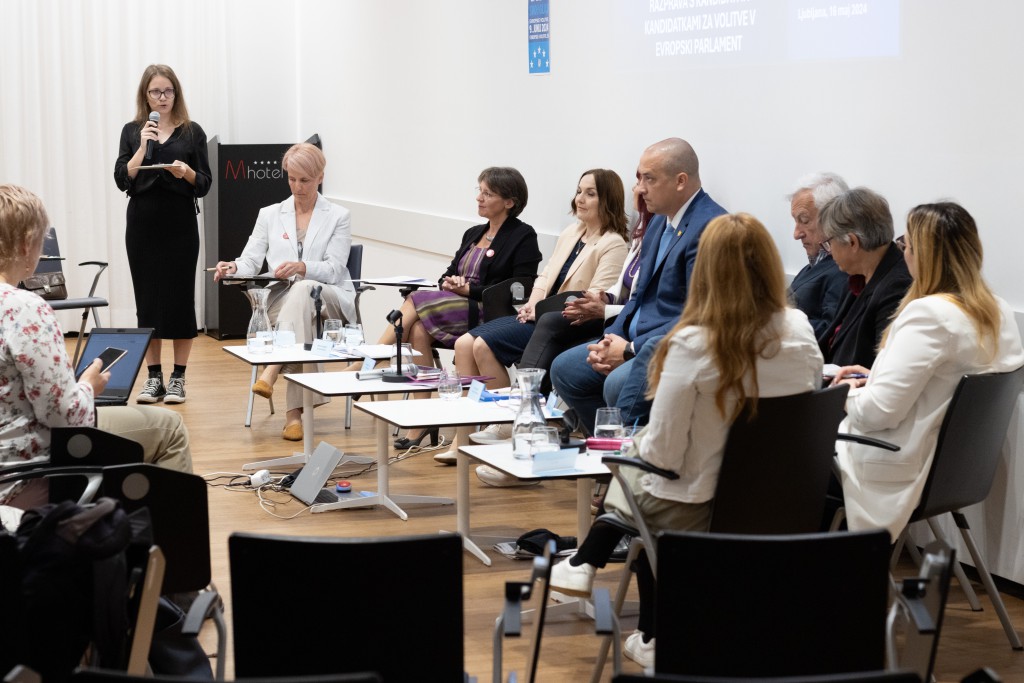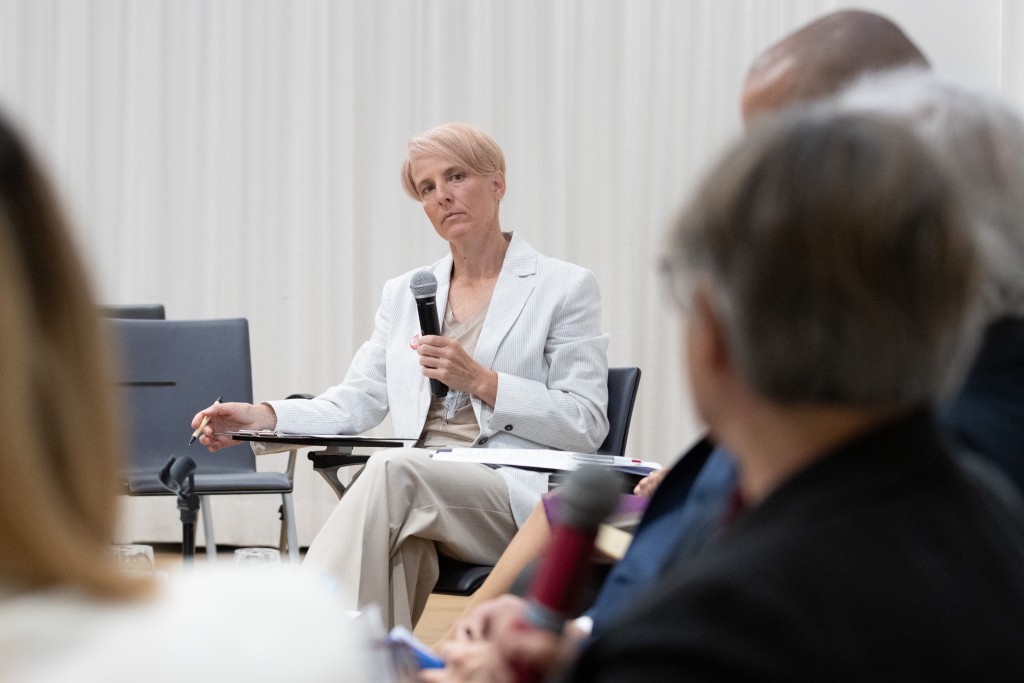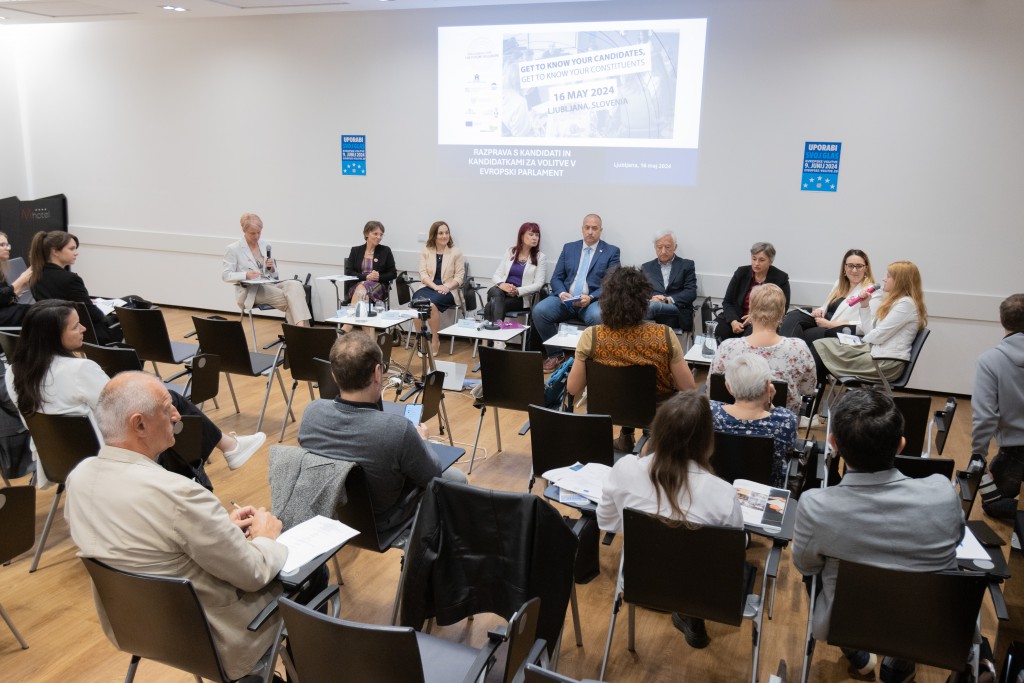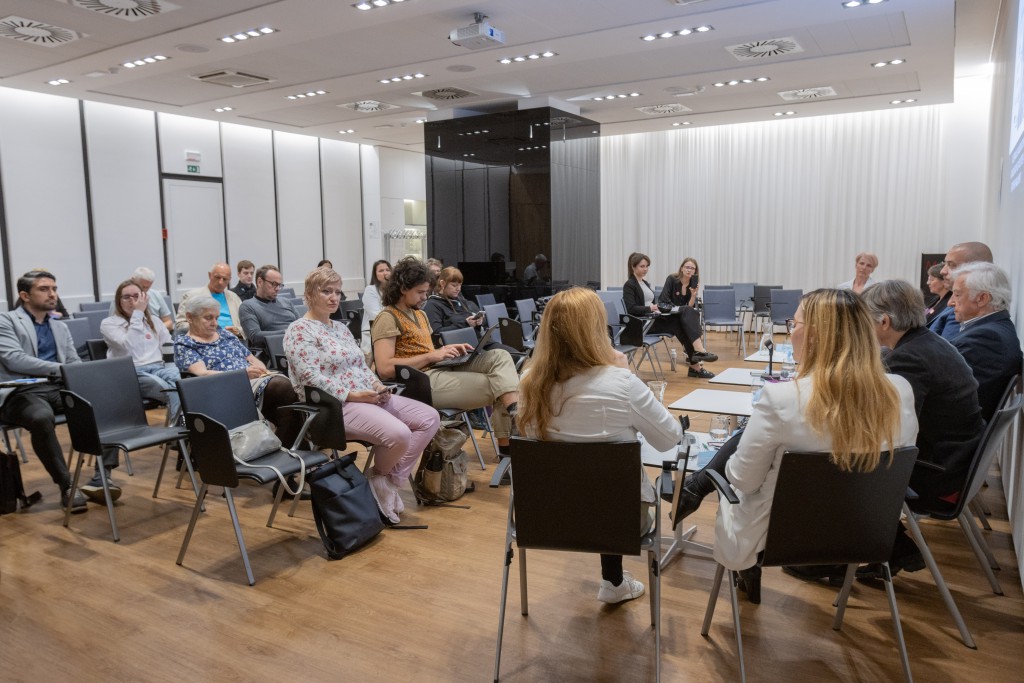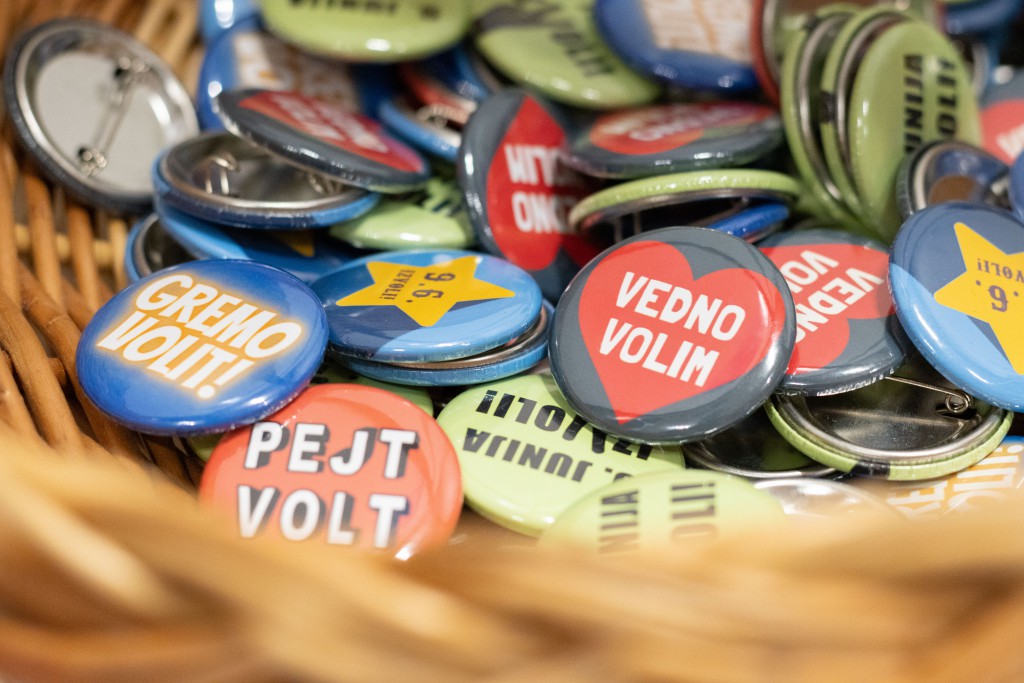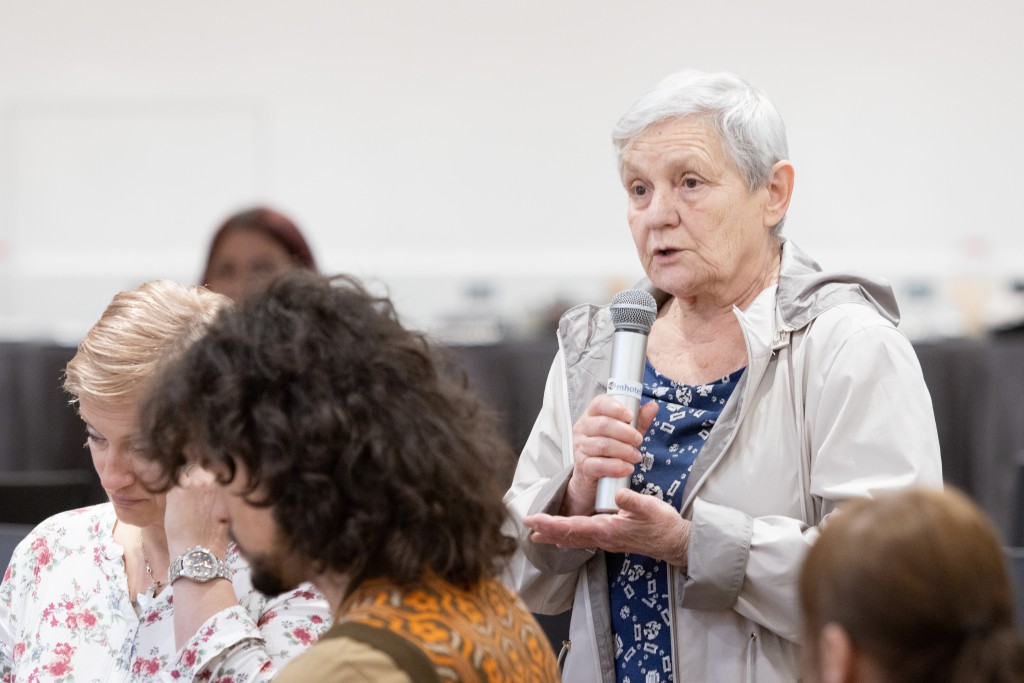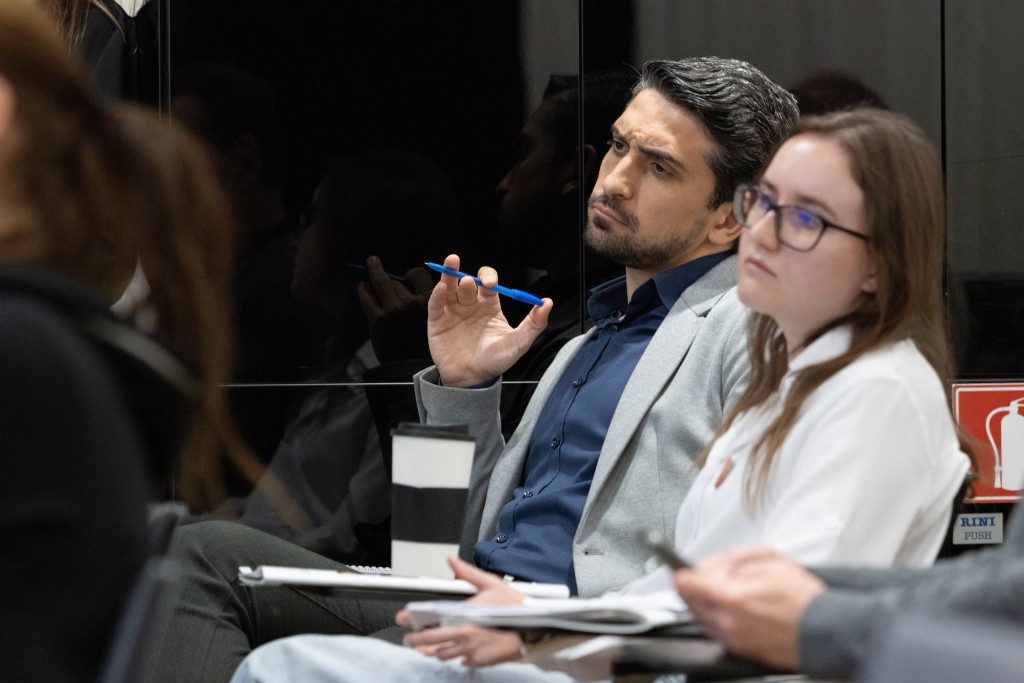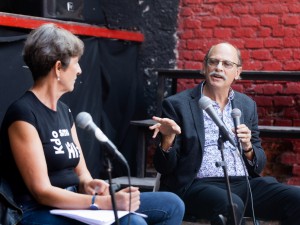On the future of European democracy with the candidates for the European Parliament elections
24. 5. 2024 | Politics
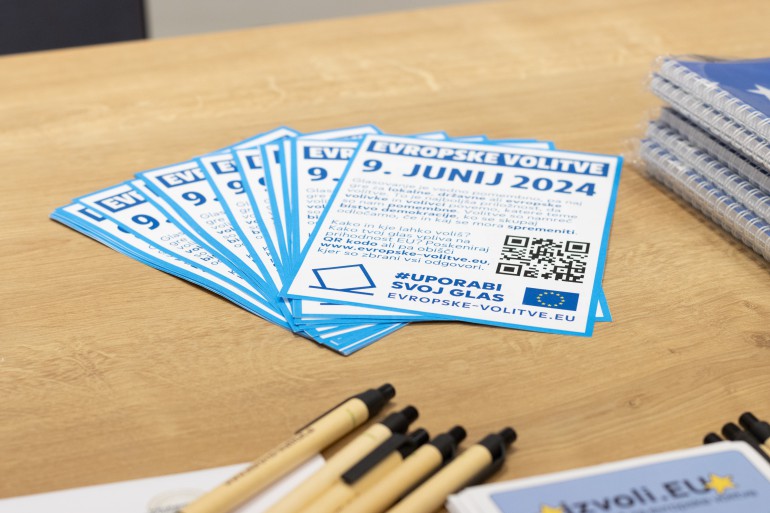
Last week, as part of the Parliament for Europe’s Future project, we organised a debate with the candidates for the upcoming European Parliament elections.
The debate, moderated by journalist and editor Nataša Briški, was attended by 8 political parties and lists running for seats in the European elections: Mija Aleš (Slovenska ljudska stranka), Mojca Erjavec (Nova Slovenija), Neva Grašič (Socialni demokrati), Jure Leben (Gibanje Svoboda), dr. Uroš Lipušček (Demokratična stranka upokojencev Slovenije in Dobra država), Nataša Sukič (Levica), Violeta Tomić (Nič od tega) in Urša Zgojznik (Vesna).
The debate focused on the recommendations on the future of European democracy made by citizens to the European institutions as part of the first public assembly or democratic participation process at European Union level, the Conference on the Future of Europe, which took place in 2021 and 2022. The debate addressed the issue of the European Union’s remoteness and weak European identity, with the candidates putting forward solutions and proposals to strengthen cooperation between the European institutions and the citizens of the EU, as well as the common European identity, which must be based on the shared values of solidarity, equality and the protection of human rights. In the second part, the debate focused on media freedom and the fight against disinformation (with a focus on social networks), where we asked the candidates whether they see politics as part of the solution or part of the problem. The issue of the new EU law on media freedom came to the fore, with a focus on the transparency of media ownership. In the last part of the panel discussion, we addressed the issue of political (non-)participation among young people, as only 10% of young people between the ages of 18 and 30 voted in the last European elections. More, Slovenia is one of the countries with the lowest voter turnout in European elections in 2019. We discussed the various reasons for the political (non-)participation of young people and asked the candidates how they take the needs of young people into account in their own party and list programmes and how they mobilise them for the upcoming European elections. The debate ended with questions from the audience.
A recording of the debate is available on Youtube link.
Photos: Jure Merčnik

